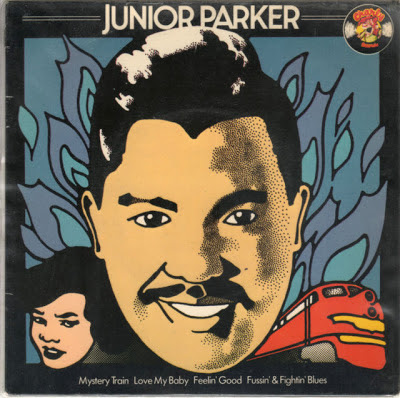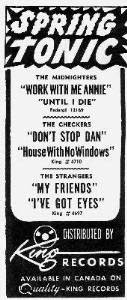A few weeks ago I was, for the first time, inside the Panopticon, otherwise the Britannia Music Hall, in Glasgow: the place where a young Stan Laurel made his first theatre appearance, without the knowledge of his father, Arthur Jefferson. I didn't have a guided tour, was just there by chance when their Penny Bazaar was taking place, and later went to watch some Laurel and Hardy films there.
Both the stage and the back of the theatre were blocked off, so a certain amount of imagination was needed in order to get the full effect from this place of pilgrimage, but I'm very glad I went. There is a group dedicated to preserving it, and you can find more details
here.
There are also some remarkable panoramic pictures on a linked site
here, allowing you to see rather more than I was able, though you still don't get to see the actual stage; the above is a screengrab from that site. Someone told me that there is a redundant toilet block in the stage area - built before someone twigged that there was no plumbing for it - and that at some point the original stage area will once again be revealed; indeed, I remember a lot of relish about the prospect of smashing through the accretions, restoring the space to something like itself. (Am I allowed to say "accretions"?)
There are regular events at the Panopticon and a shop nearby, so if you live in Glasgow, or even if you don't, please support it if you can. Judith Bowers, who was behind the discovery, has written a book about it.
But back to this new play, which is the Afternoon Play on BBC Radio 4 on Friday, 28th September - more details
here. There has, in recent years, been a radio play about Stan Laurel and his relationship with Oliver Hardy by Neil Brand, but according to the Beeb's advance publicity this new script by Colin Hough, cannily entitled Hard Boiled Eggs and Nuts, focuses on the relationship between Stan Laurel and his mother and is set in Glasgow in 1906. The proprietor of the Panopticon is featured so Laurel's debut may well be at the centre of the story. I've read most of the available material about the great pair over the years but can't, offhand, think how much imagination may be necessary to conjure up Laurel's early life, but the play should be an interesting listen.

I heard the radio version of Tom McGrath's stage play Mr Laurel and Mr Hardy a few years back, which I wasn't that keen on - maybe the stylised nature of it was less suitable for radio, though I have to admit that I saw the original stage production at the Citizens' Theatre in Glasgow and remember thinking that the delight of a carefully recreated dance from Way Out West at the end was a bit of a con, making the audience think they had had a better experience than what had actually unfolded over the last ninety minutes or whatever. Though there were moments when
John Shedden, as Laurel, appeared uncannily like him. I had also seen him earlier in another play, at the King's Theatre, and one moment when he sat down to dine seemed to have all the characteristic, comic humility of Laurel. But I ought to read the script.
I remember Tom McGrath fondly, as there were occasions when he listened to my adolescent ramblings as though much wisdom, or at least much of interest, was contained therein. Once I was on the point of asking him about the play, and how much information there had been to draw on beyond John McCabe's two books (this was the early seventies). But I didn't - and now I can't.
There exists somewhere in the archives of the Glasgow Herald a photograph of Tom McGrath wearing half a dozen bowler hats, appealing for more as the original production involved smashing one of those at each performance. It made, as the Herald noted in a pleasing phrase, for "a hattish fetish." I hope I see that photo again some day.
I haven't yet listened to Stan, the Neil Brand radio play, though I did watch the TV adaptation. I know someone in the radio drama business who has a low opinion of the latter, and I can see that it does seem like it would be a perfect radio play, with Hardy's presence felt rather than seen. But before I knew it had been wrenched from a better setting what did discombobulate me about the TV version was that the actor playing Laurel had brown eyes. Brahn eyes! I ask yer! Brahn eyes! A small detail? Not when those piercing blue eyes stare out at you from every B&W still.
Lastly - as this post seems to have become a grab-bag of Laurel and Hardy-related memories - two more things.
One is that in my dominie incarnation I once took the chance to condense into fifteen minutes what I felt about the pair. It went well, partly because I put far more care and preparation into it than my normal lessons, shamelessly roadtesting it on numerous groups of students beforehand.
On the day itself, my colleague who'd kindly agreed to operate the slide projector didn't have an easy task because, despite the rehearsal, as I became more relaxed and felt the warmth of the audience's attention, safely distanced and indistinguishable in the semi-darkness, I added further thoughts as they occured, like the detail which has always touched me about Oliver Hardy, on tour in the UK in the fifties, going up a steep flight of stairs to get Ray Allan's autograph for his and Stan's collection. (I suppose you could say that Ray Alan returned the favour, as a photo of Stan provided
the inspiration for the modelling of Lord Charles.)
After a student played a little bit of the sig tune to end proceedings and I had a strange feeling which transcended ego: while it was great to be showered with compliments - something which I never attracted, I may say, for my teaching - my overriding feeling while giving the assembly was that here was a chance to say, and to have others hear, how much these two people had meant to me, a chance to repay, at least a little, what they had given.
Which reminds me of the section which another colleague, head of Media Studies, said I should cut out of my draft of the talk, and so I did. He was probably right for such a setting but I remember the passage, which was extracted from Philip Oakes' novel about a film critic, called A Cast of Thousands, or something like that.
I recommend Oakes' novels - there's another called Exactly What We Want, which draws on his early days as a reporter - and his three volumes of autobiography, not to mention his memoir of Tony Hancock.
But I digress. The point is that the excessive piece of writing came from A Cast of Thousands (or however many it was) and concerned the film critic's then girlfriend or partner who was clearly not, after all, The One. And it all came down to Laurel and Hardy. She would watch in annoyed disbelief as he practically fell off his chair watching shorts like The Music Box and the critic realises that he can never explain the magic of those long-vanished days in the Californian sunshine nor the enduring appeal of Laurel and Hardy:
Like love, they were not part of her world.
Review of Hard Boiled Eggs and Nuts here.
Postscript:
Another Stan Laurel play which ought to have been mentioned in this post is Stan Laurel: Please Stand Up!, a one man show by Bob Kingdom.
Having missed the chance to see it in an intimate theatre on my doorstep I was obliged to watch it in a less sympathetic space. But even if the laughs weren’t loud on that occasion, they were there, and the conversations in the bar at the interval showed that people were engaging with the play, which wasn't a straightforward biographical piece, nor an excuse to recreate film routines. The first act showed us a Stan who didn’t know who he was, followed by the mature Laurel in the second half and the two personae meeting at the end, giving the whole thing a satisfying and clear shape.
Kingdom also wrote the piece, which made me think about what Tim Fountain has said about writing monologues based on real characters – I don’t have his book to hand but the gist is: do all the research then forget it and make an instinctive leap towards what connects you and the character.
Mr Kingdom is currently touring with another one man show, An Audience with the Duke of Windsor - details here - but if Stan Laurel: Please Stand Up! gets another outing it is worth investigating.

















































